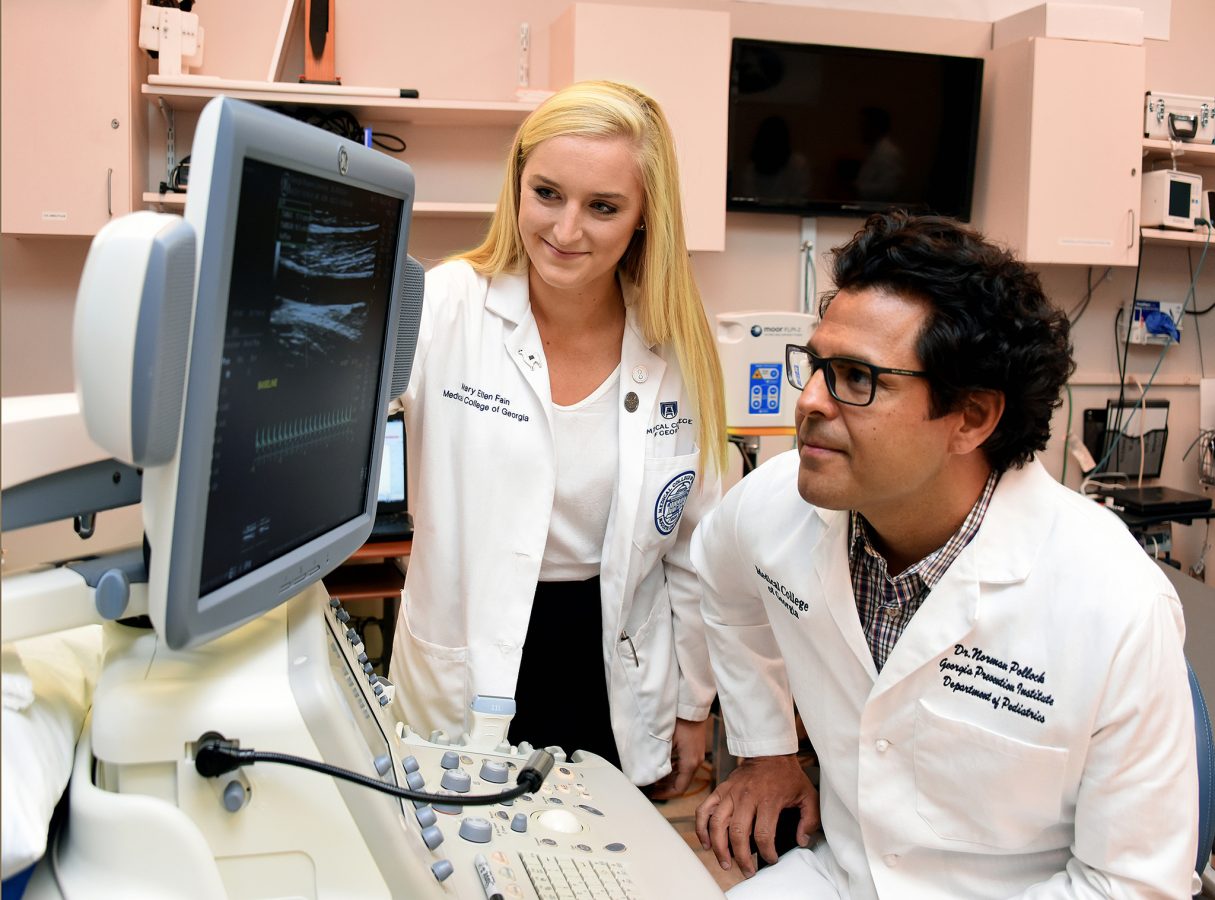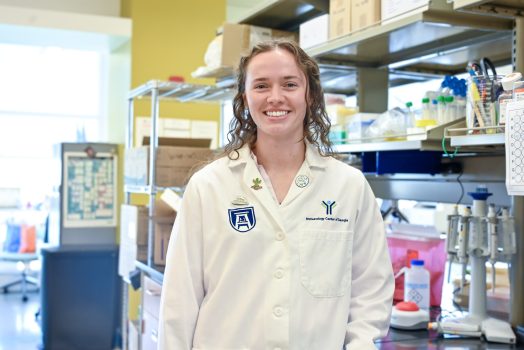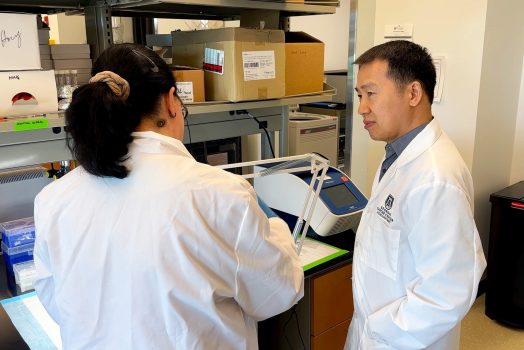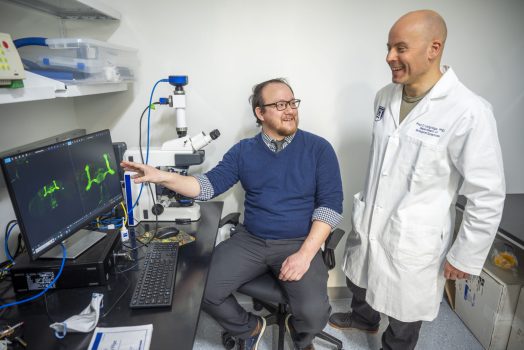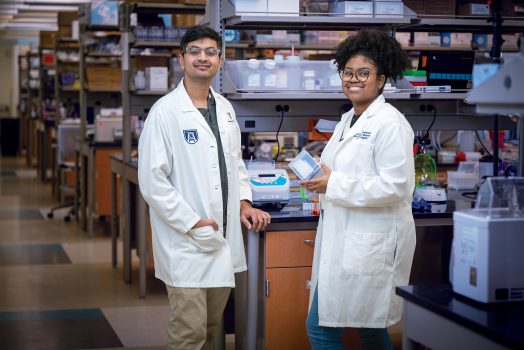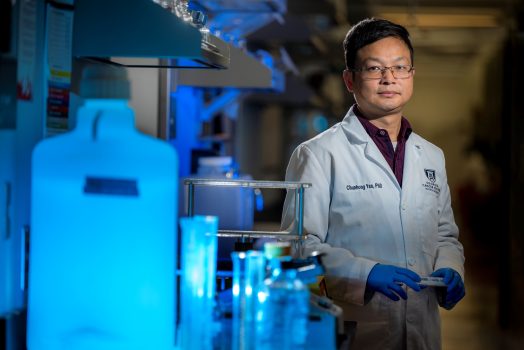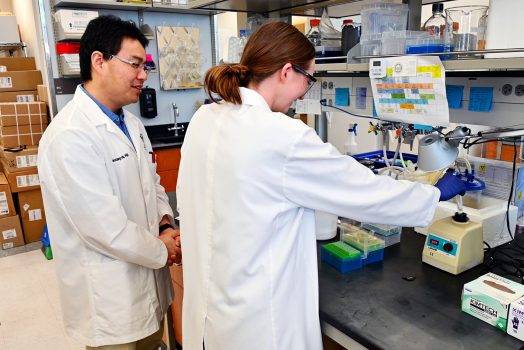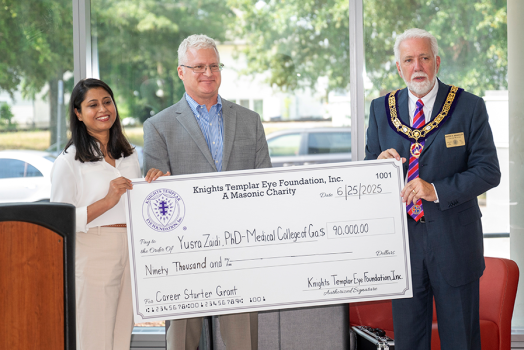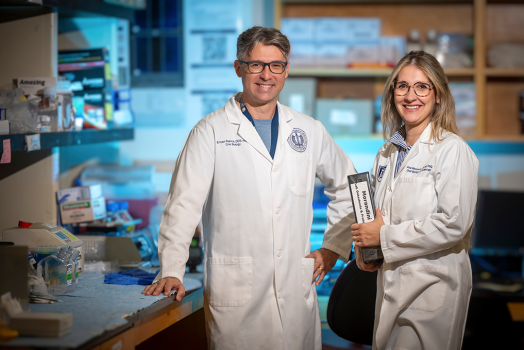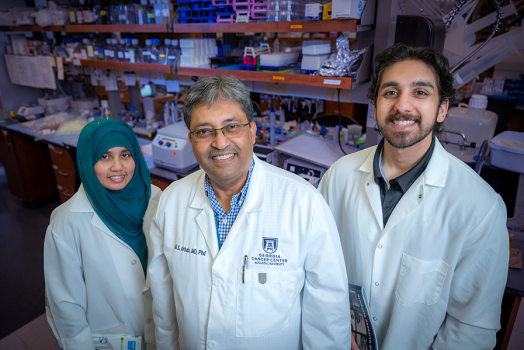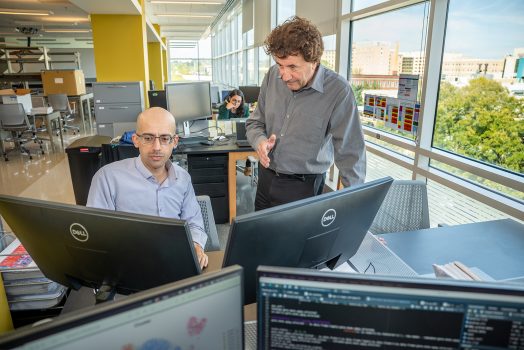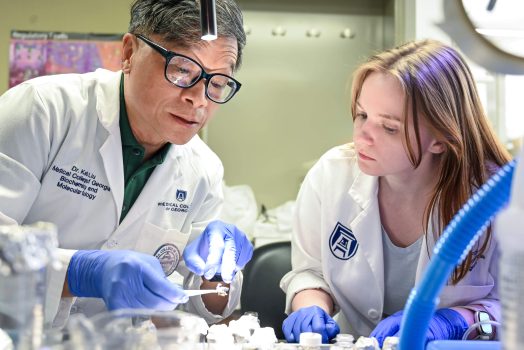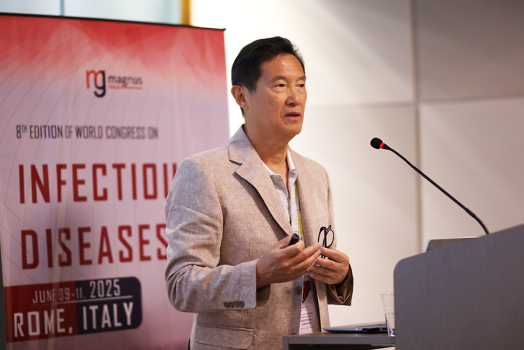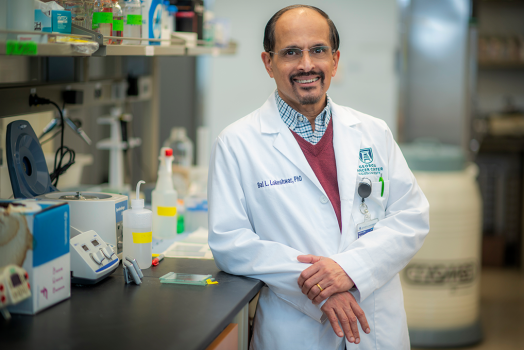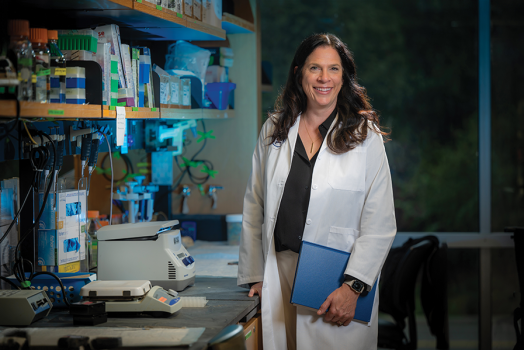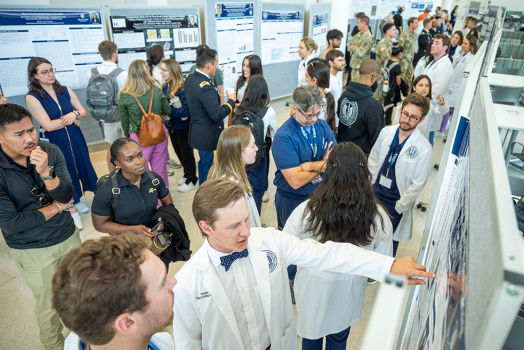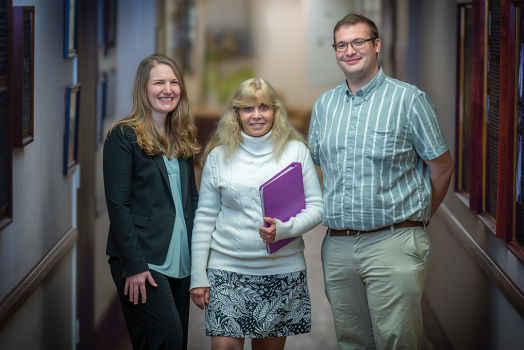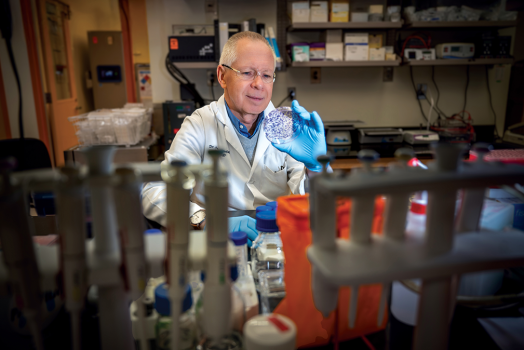“I want to work toward more effective ways of treating and screening cancer, specifically, in my case, melanoma," says Elayne Benson.
During their research, Bangxing Hong, PhD, and his research team learned how cancer cells can manipulate our body’s own systems.
“Instead of controlling normal processes, they can do something beneficial by triggering an immune response or maybe taking away a growing tumor," says Paul Langridge, PhD.
Two graduate students from the Immunology Center of Georgia will use NIH awards to explore the immunological drivers behind cardiometabolic disease.
“The treatment requires patients to carry mutations in their DNA repair genes, but more than 70% of patients do not carry these genes,” says Chunhong Yan, PhD.
"I want to help find answers to the big questions about DNA as a paleoanthropologist," says Eliana Benevides, a participant in the program.
“If retinopathy of prematurity is treated early, vision can be improved or saved, and we can protect the future of these infants,” says Yusra Zaidi, PhD.
"It can help us better understand how gum disease connects with obesity and metabolic disorders,” says Ana Carolina Morandini, DDS, PhD.
"Funding is crucial for this type of research to be continued and for new and better treatments to be created," says Ali Arbab, MD, PhD.
“A patient’s immune system is unique. With clearer markers, we can better understand how to tailor therapies to each person’s condition," says Mohammad Oliaeimotlagh, MD.
“Paceline funding has given us the ability to continue this work. I am very grateful for their support and hopeful for the future of this treatment,” says Kebin Liu, PhD.
“I have taken care of patients who had a complete blockage in a major leg artery and had no idea they had any problem," says Brian H. Annex, MD.
Suzanne Mathis' paper, “The Re-Emergence of Measles,” was published by "Dimensions of Dental Hygiene" in the May/June edition.
"FAST takes a completely different approach from traditional nanotechnology," says Stephen Hsu, PhD.
New research from the Immunology Center of Georgia is changing how scientists view the autoimmune side of heart disease.
“There is this kind of excitement and curiosity that comes with constantly finding something that you never expected," says Balakrishna Lokeshwar, PhD.
“This grant is particularly impactful as we look to advance and improve the health of women, not just in Georgia, but for the entire country," says Jennifer C. Sullivan, PhD.
“It is a great opportunity to connect our groundbreaking discoveries from basic science into real-world clinical practice," says Babak Baban, PhD.
“I had a personal interest because my mother-in-law had a spinal cord injury, and she had really bad neuropathic pain,” says Laura Carbone, MD.
“This research opens new avenues for understanding cancer stem cell behavior,” says Andrew Yeudall, PhD.
 Augusta University
Augusta University
